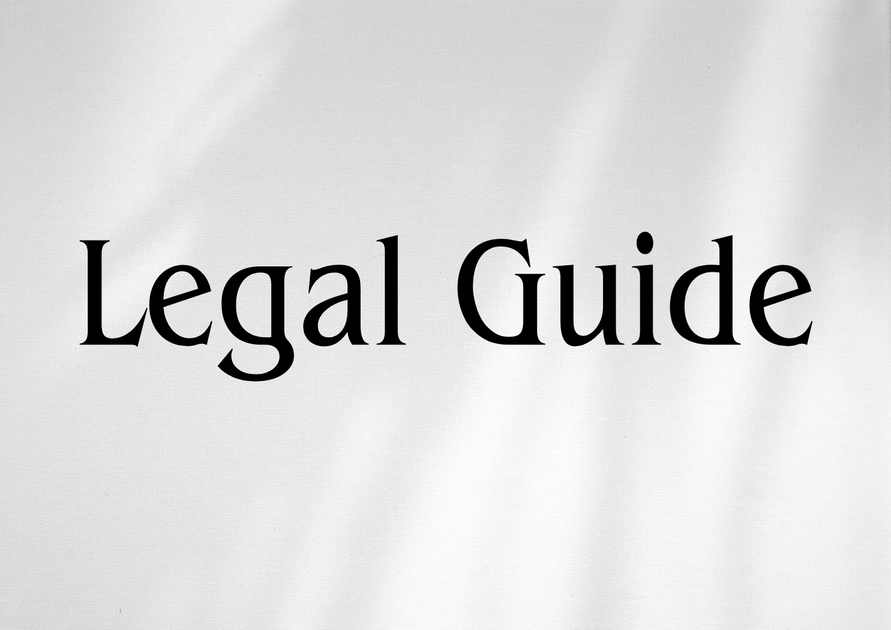Introduction
Breach of contract is a critical issue in Qatar’s vibrant business environment, with the country’s evolving legal landscape playing a pivotal role in how commercial relationships are managed and disputes are resolved. In recent years, the importance of robust contractual compliance has only intensified, driven by legislative updates and the expansion of international investment in Qatar and the wider GCC region. For UAE-based businesses and legal professionals engaged with Qatari counterparts or operations, understanding the nuanced legal remedies available for breach of contract in Qatar is not merely academic – it is a business necessity.
This comprehensive analysis explores substantive and procedural aspects of Qatar’s contract law, emphasising its practical applications for UAE-based entities. It compares key elements with the UAE’s own legal framework, and provides actionable risk mitigation strategies to ensure legal compliance, operational efficiency, and business continuity. The insights provided here draw on official sources and recent legal updates, equipping stakeholders with the knowledge to respond confidently and proactively to contractual disputes in Qatar.
Table of Contents
- Qatar Contract Law: An Overview
- Core Principles of Obligation and Breach
- Statutory Remedies Available
- Judicial Process for Contractual Claims
- Comparing Qatar and UAE Contract Law
- Case Studies and Practical Examples
- Risks of Non-Compliance in Qatar
- Proactive Compliance and Best Practice
- Conclusion and Recommendations
Qatar Contract Law: An Overview
The Legal Foundation
Qatar’s contractual framework is anchored in Law No. 22 of 2004 (the Civil Code), which governs obligations and contractual relations. The Civil Code draws upon a mix of civil law traditions, Islamic law principles, and influences from neighbouring jurisdictions. Supplementing these are sector-specific laws – for example, Law No. 8 of 2002 on Public Procurement and Law No. 13 of 2016 regarding the Regulation of Real Estate Brokerage.
Key statutory principles affecting contract formation, validity, interpretation, performance, and remedies for breach are primarily contained within Articles 171 to 256 of the Civil Code. Recent practice shows that the Qatari judiciary takes a pragmatic, business-oriented approach, seeking to balance the letter of the law with underlying good faith and fairness principles.
Relevance to UAE Businesses
The vibrancy of commercial exchange between the UAE and Qatar, particularly following the easing of the Gulf diplomatic rift, has made knowledge of Qatari contract law essential for UAE businesses. Cross-border ventures, EPC contracts, construction, and tech service agreements routinely invoke Qatari law or require dispute resolution within Qatar’s jurisdiction. This reality highlights the importance for UAE-based legal practitioners, executives, and contract managers to be able to interpret legal risks and respond appropriately to breaches in Qatar.
Core Principles of Obligation and Breach
Formation and Performance of Contracts
According to Article 172 of the Qatari Civil Code, a contract is formed when two parties agree on essential elements: offer, acceptance, intention to create legal relations, and lawful subject matter. Once the contract is validly formed, each party is bound by the express terms, applicable law, and principles of good faith (Article 172).
Definition of Breach
A breach occurs where a party fails to perform, delays performance, or acts inconsistently with its contractual or statutory obligations. Under Article 256, a party is liable for non-performance unless it can prove force majeure or an external cause beyond its control.
Practical Insight: Contracts should specify default events, remedies, and procedures to pre-empt disputes and facilitate enforcement in Qatar’s courts.
Types of Breach
| Type of Breach | Description | Remedial Approach |
|---|---|---|
| Material Breach | Significant failure that defeats the contract’s purpose | Entitles innocent party to terminate and claim damages |
| Minor/Partial Breach | Lesser breach that does not wholly undermine contract | Extends to damages but not always termination |
| Anticipatory Breach | Repudiation or clear refusal to perform before due date | Allows party to terminate before actual breach occurs |
Statutory Remedies Available
Remedies under Qatar’s Civil Code
When faced with a contractual breach, the aggrieved party may pursue a range of remedies as provided under Chapter 3 of Qatar’s Civil Code:
- Specific Performance (Article 263): The court can order a defaulting party to fulfill its obligations, unless performance is impossible or unreasonably burdensome.
- Damages (Articles 256, 265, 266): Compensation may be awarded for proven losses suffered as a direct result of the breach, including actual and sometimes (with caution) consequential losses.
- Contract Termination (Article 184, 185): The aggrieved party can request the contract be terminated and claim damages where appropriate.
- Penalty Clauses (Article 266): Courts may uphold agreed liquidated damages unless considered excessive or punitive.
- Interim/Precautionary Measures: The judiciary has discretion to grant injunctions or freeze assets in urgent cases, though conservatively applied.
Remedy Selection and Limitations
Qatari courts often favour damages as the principal remedy but view each case’s circumstances carefully. Notably, claims for punitive damages or indirect losses are scrutinised, with courts preferring to remedy only foreseeable and direct losses.
Agreed Damages vs. Judicial Assessment
| Approach | Applicable Law | Court’s Role |
|---|---|---|
| Agreed (Liquidated) Damages | Article 266, Civil Code | May enforce, but subject to reduction or adjustment if deemed excessive |
| Unliquidated Damages | Articles 265, 256 | Determined on evidence of actual loss |
Practical Guidance
- Ensure dispute resolution and liquidated damages clauses are clearly drafted.
- Retain documentary evidence of loss and mitigation efforts.
- Recognise that penalty clauses will not be automatically enforced if they conflict with Qatari public policy or statutory limitations.
Judicial Process for Contractual Claims
Initiating Legal Proceedings
Contractual claims in Qatar are generally initiated by filing a Statement of Claim at the civil courts. For commercial disputes, jurisdiction typically lies with the Qatari Civil and Commercial Court. In some cases, arbitration (notably for major construction projects) may be specified as the mandatory dispute mechanism.
The claimant must provide documentary evidence of the contract, proof of breach, and demonstrable loss. The judge will consider the parties’ submissions, contract wording, and applicable law in rendering a decision.
Procedural Requirements
- Time Limits: Limitation periods in Qatar are generally 15 years for contractual claims, unless otherwise specified by law. However, for certain categories (like employment), the period may be shorter (Law No. 14 of 2004 on Labour Law sets at one year for employment disputes).
- Evidence: Written contracts, communications, and records are vital. Courts give prevalence to written documentation unless there is compelling reason to admit oral evidence.
- Expert Opinion: Technical disputes may require expert reports, particularly in construction and commercial matters.
Arbitration and ADR
Qatar promulgated Law No. 2 of 2017 (Arbitration Law), catalysing the acceptance of arbitration for commercial contracts. Parties should ensure that arbitration agreements are unambiguous and comply with statutory form requirements.
Practical Example: If a construction project encounters delay, the employer may seek interim relief via the courts (such as injunctions) before referring the substantive breach to arbitration, provided the contract and law permit such measures.
Comparing Qatar and UAE Contract Law
Overview of UAE Law and 2025 Updates
The UAE’s Federal Law No. 5 of 1985 as amended (the Civil Transactions Law) shares several similarities with Qatar’s Civil Code. Both regimes are strongly influenced by civil law traditions and recognise the primacy of contract, good faith, and sensible risk allocation. However, there are nuanced differences, especially in the enforcement of penalty clauses, assessment of damages, and treatment of limitation periods.
| Area | Qatar (Law No. 22/2004) | UAE (Federal Law No. 5/1985 & 2025 updates) |
|---|---|---|
| Good Faith | Explicitly required (Art. 172) | Explicitly required (Art. 246) |
| Limitation Period | Typically 15 years | Typically 15 years (contract), 3 years (tort) |
| Penalty Clauses | Enforced with possible judicial adjustment (Art. 266) | May be adjusted if proven excessive/new 2025 clarification strengthens judicial discretion |
| Arbitration | Law No. 2/2017 | Federal Arbitration Law No. 6/2018 (with 2025 updates on enforceability) |
| Employment Claims | 1 year (Labour Law) | 1 year (Federal Law No. 33/2021) |
It is advisable for UAE businesses to seek local Qatari legal expertise in contract negotiation and enforcement, particularly when cross-border elements are at play or when recent law reforms introduce procedural innovations.
Case Studies and Practical Examples
Case Study 1: Non-Delivery in a Distribution Contract
Hypothetical: A UAE-based FMCG supplier enters an exclusive distribution contract with a Qatari distributor, governed by Qatari law. The supplier delivers goods late, impacting the distributor’s market share.
Remedy: The distributor files a commercial claim in a Qatari court, presenting written evidence of loss. The court assesses whether delay constitutes a material breach, ultimately awarding damages for direct losses associated with the late delivery, but rejecting a claim for remote, speculative losses. The court also reviews the contract’s liquidated damages clause and enforces a reduced figure in line with Article 266’s proportionality principle.
Case Study 2: EPC Project Delays
Hypothetical: A UAE engineering firm undertakes a major EPC project for a Qatari client. Despite provisions for liquidated damages, the completion is delayed due to a global material shortage. The contractor claims force majeure.
Analysis: The Qatari court examines the contract’s force majeure language, contemporaneous evidence, and the contractor’s mitigation efforts. Ultimately, the claim is upheld as force majeure was sufficiently documented, excusing liability for delay.
Risks of Non-Compliance in Qatar
Legal and Commercial Risks
Businesses exposed to Qatari jurisdiction must be acutely aware of the following risks associated with breach of contract:
- Court-Ordered Damages: Liability for substantial damages, including court costs and interest (at the statutory or negotiated rate).
- Reputational Harm: Adverse judgments can affect corporate reputation, government tenders, and future business prospects in Qatar.
- Asset Freezing and Enforcement: Courts may order interim freezing of assets or direct reparation from available assets in Qatar, complicating regional operations.
- Disqualification and Blacklisting: Repeated non-compliance could result in exclusion from public procurement or trade blacklists.
Compliance Checklist
| Compliance Action | Best Practice |
|---|---|
| Contract Drafting | Include Qatari law considerations and robust dispute provisions |
| Document Management | Maintain comprehensive written records and communications |
| Mitigation of Loss | Take all possible steps to reduce impact of breach and evidence such measures |
| Dispute Resolution | Clearly stipulate forum, language, and procedures in contracts |
| Legal Training | Regularly update legal and commercial teams on Qatari law changes |
Proactive Compliance and Best Practice
Operational and Risk Management Insights
To prevent breaches and ensure effective recourse in Qatar, UAE-based organisations should:
- Conduct Regular Contractual Audits: Continually review legacy and active contracts for compliance with current Qatari legal standards and recent amendments.
- Invest in Local Expertise: Engage Qatari counsel for contract negotiation, dispute assessment, and court representation to navigate cultural and legal nuances.
- Leverage Technology and Automation: Implement contract management solutions to track deliverables, deadlines, and legal exposures across multiple jurisdictions.
- Update Dispute Resolution Policies: Align dispute management protocols with latest Qatari procedural developments and cross-border best practices.
Conclusion and Recommendations
The legal remedies available for breach of contract in Qatar, as codified in Law No. 22 of 2004 and shaped by recent jurisprudence, present both opportunities and challenges for UAE-based businesses and regional investors. The Qatari legal system emphasises good faith, proportionality, and commercial fairness in the award and enforcement of contractual remedies. Notably, recent legal updates in the UAE – such as the 2025 refinements to civil and arbitration laws – underscore a broader GCC trend towards greater judicial oversight, clarity, and investor protection.
For clients operating in or with Qatari entities, robust contract management, timely access to expert legal advice, and a dynamic approach to compliance are strategic imperatives. By staying informed of legal reforms, maintaining detailed documentation, and embedding dispute mitigation procedures, businesses in the UAE and across the GCC will not only manage risk but also seize emerging opportunities in the region’s evolving legal and commercial landscape.
Our legal consultancy remains at the forefront of these developments, assisting clients in drafting, negotiating, and enforcing contracts that are resilient to legal risk and attuned to the realities of cross-border trade in Qatar and the wider GCC.




